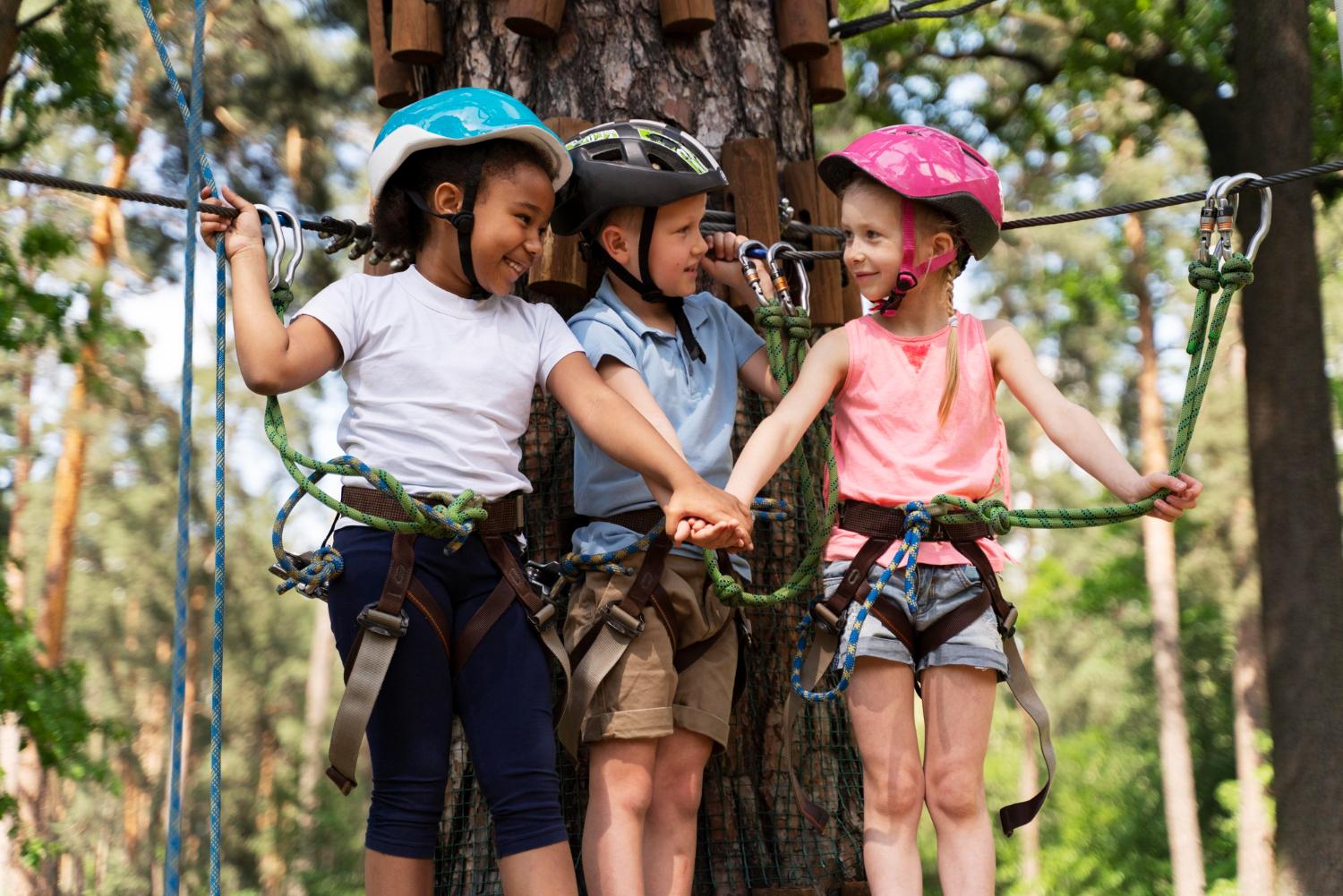The importance of summer camps for kids in 2024 has never been greater in the digital age when screens frequently take up youngsters' time and outdoor activities occasionally take a backseat. Summer camps are becoming increasingly valuable safe havens where kids can grow, thrive, and create lifelong memories, as parents and guardians look for comprehensive developmental experiences for their young charges. Kids camp remains a tradition that is infused with innovation, even in the face of changing societal trends and technology breakthroughs. We examine the various ways that immersive summer camp experiences continue to mold young brains and foster holistic development in our investigation on the advantages of summer camps for kids in 2024. Summer camps serve as dynamic platforms where kids go on life-changing, self-discovery excursions, promoting everything from creativity and environment appreciation to social skills development and resilience building. When we examine the many benefits that campers will experience by 2024, it is clear that these beloved getaways are more than just vacations; they are vital investments in the overall health of our children.
Here are some benefits of summer camp for kids in 2024
- Social Skills Development
- Physical Activity and Health
- Confidence Building
- Creative Expression
- Life Skills Acquisition
- Cultural and Global Awareness
- Unplugged and Mindfulness
1) Social Skills Development:
Kids can engage in extensive social interactions with classmates from a variety of backgrounds during summer camps. Children acquire important social skills including cooperation, communication, and conflict resolution through team-building exercises, group games, and shared experiences. Summer camps provide students with a vital opportunity to improve their interpersonal skills at a time when digital communication frequently takes the place of in-person interactions.
2) Physical Activity and Health:
Summer camp programs encourage children to participate in physical activities and outdoor excursions in an era where sedentary lifestyles are becoming more and more common. Sports, hiking, swimming, and adventure challenges are all good ways to improve your physical health, coordination, and general well-being. Additionally, camps help kids develop a lifelong love of the great outdoors by teaching them to value the natural world and make lifelong good habits.
3) Confidence Building:
Children attending summer camps are encouraged to embrace new challenges and venture outside of their comfort zones, as they are not in the familiar surroundings of home. Every accomplishment made at camp, whether it's finishing a high ropes course, participating in a talent show, or meeting new people, helps youngsters feel more confident and good about themselves. Children who attend camp learn self-belief and develop resilience and independence, which equips them to face life's obstacles head-on.
4) Creative Expression:
Kids can develop their interests and talents in a supportive environment at summer camps. Art and craft, music, theater, and environmental exploration are just a few of the creative expression and imagination-boosting activities offered at camp. In a safe, accepting environment, kids are free to try new things, pick up new skills, and express their creativity.
5) Life Skills Acquisition:
Summer camps provide youngsters with invaluable opportunities to acquire useful life skills, in addition to entertainment and games. Through practical experience, children acquire essential survival skills such as erecting a tent or a fire, as well as more complex abilities like problem-solving, leadership, and cooperation. These experiences equip them for life after school. Kids gain valuable life skills at camp that go well beyond the campfire, like empathy, responsibility, and resilience.
6) Cultural and Global Awareness:
Summer camps are microcosms of diversity and cross-cultural interchange in a world growing more interconnected by the day. Through their interactions with peers from diverse cultural, ethnic, and socioeconomic backgrounds, campers develop empathy and understanding across cultural divides. Children get to know and value variety via intercultural activities, conversations, and shared experiences that broaden their worldview.
7) Unplugged and Mindfulness:
Summer camps provide a welcome break from the digital world where children can disconnect and re-establish a connection with the here and now. Campers disconnect from electronics and spend time in nature, which cultivates awareness and awe. Children who unplug from screens are better able to concentrate on real-world activities, form meaningful relationships, and gain a greater appreciation for the wonders of nature.
Conclusion
In conclusion, summer camps for children offer a comprehensive approach to childhood development in 2024, with benefits that are as varied and significant as ever. Summer camps offer children a vital opportunity to learn, grow, and flourish through social interaction, physical activity, artistic expression, and the acquisition of life skills. While society struggles with the demands of modernity, summer camps continue to be unwavering in their dedication to developing well-rounded people. These immersive experiences have a lasting impact on the leaders, innovators, and changemakers of the future, influencing them well beyond the summer months. They do this by encouraging resilience and confidence as well as cultural knowledge and mindfulness.

